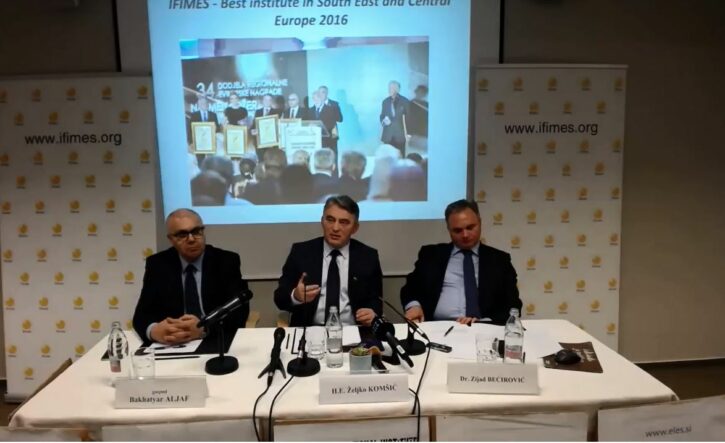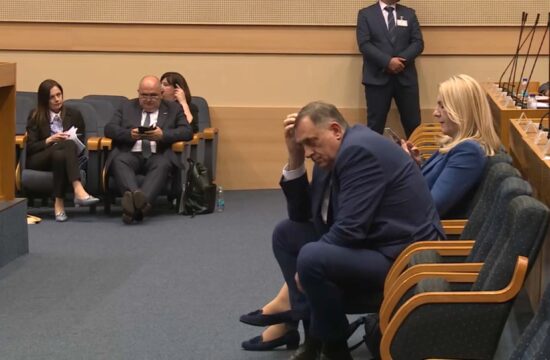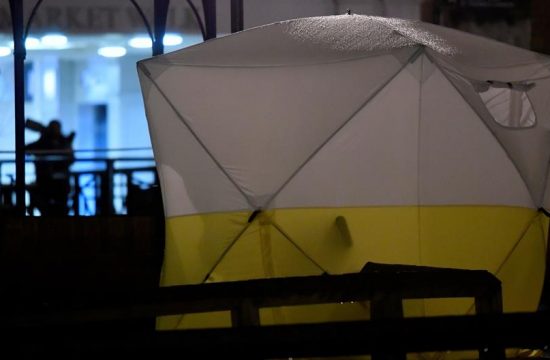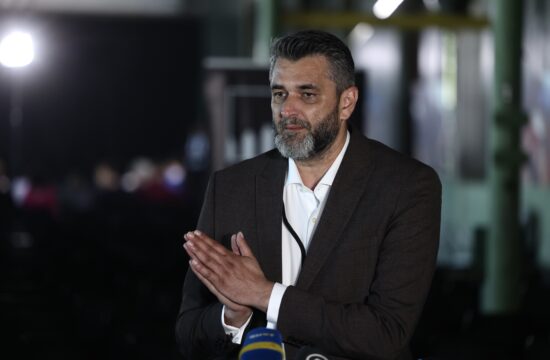
When it comes to Bosnia’s EU integration process, it is quite clear it cannot join the EU with its current, ‘Dayton,’ political system, because it is a complete opposite from what the EU represents, Bosnia’s Croat Presidency member, Zeljko Komsic, said speaking at “Bosnia’s EU and NATO integration process” lecture in Ljubljana, Slovenia.
“We should also mention that the EU is based on the protection o civic rights of individuals, not on the rights of collectives,” Komsic said.
Bosnia’s Constitution is part of the Dayton Peace Agreement which ended the 1992-1995 war in the country. It stipulates that the country’s three main ethnic groups, Bosniaks, Serbs and Croats, as well as ‘Others,’ have collective rights and as such, each group must have a proportionate number of representatives on every government level.
This rule is in direct contradiction with the fundamental democratic rule which places individual rights above the collective ones.
Komsic added that Bosnia’s EU and NATO accession process also means also means the establishment of the rule of law and a more efficient fight against crime and corruption.
“The rule of law means there must be an efficient system in the fight against crime and corruption, which Bosnia lacks at the moment. There are many political structures in the country which want to undermine this EU principle so they could keep their position and power,” he noted.
The key thing for Bosnia is to get the candidate status for the EU because, Komsic said, “if we lose this opportunity, who knows what the political atmosphere will be like in the EU after the upcoming EU election. We mustn’t miss our opportunities either for the EU or NATO.”
The Croat member of Bosnia’s tripartite Presidency consisting of representatives of each major ethnic group in the country, also spoke of Croatia’s policy towards Bosnia, saying that its policy is not made in Zagreb, but in western Mostar, the head of the Croat Democratic Union of Bosnia (HDZ BiH), a sister party of the Croatian Democratic Union (HDZ) which is the ruling party in Croatia.
“My impression is that Croatia’s policy towards Bosnia is created in the western Mostar and by a group of people gathered around the HDZ BiH leader Dragan Covic. I get the impression that part of the government in Zagreb is a hostage of Covic’s policies,” Komsic said. “The only normal path for our two countries is to sit down and talk and cooperate. Everything else is immature.”
During the October general election in Bosnia, the Democratic Front’s centre-left candidate Zeljko Komsic defeated his rival for the Croat Presidency member, Dragan Covic, from the nationalist HDZ BiH.
After the Central Election Commission published the election result, the HDZ BiH and parties gathered around it went on a campaign to delegitimise Komsic’s election, saying he was elected by Bosniaks, living in mostly Bosniak communities and therefore he cannot represent Croat interests in Bosnia.
They were also joined by Croatian officials coming from the HDZ who used their EU membership to spread this campaign against Komsic even further.




